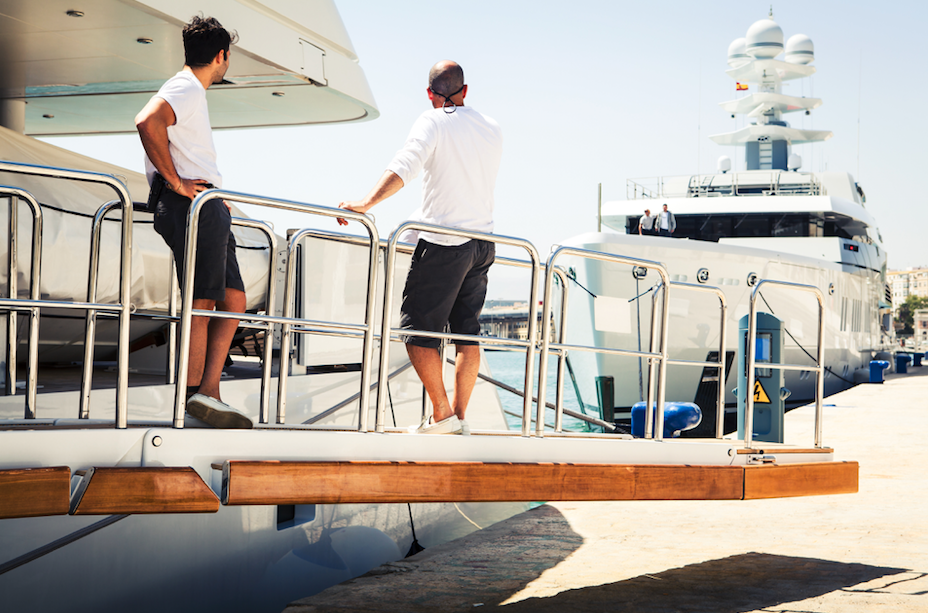Crew thoughts and trends
Understanding the thoughts and feelings of superyacht crew are absolutely vital for helping the market to evolve…
A recent report published by Faststream Recruitment Group and Yospot, The Superyacht Survey 2022, asked crew members to provide their opinions on several key topics and trends. A total of 556 crew, which represented a cross-section of the industry, took the survey and the results are published below. The report follows an unprecedented period of uncertainty and difficulty for superyacht crew given that the COVID-19 pandemic had a profound impact on the ability of both private and commercial vessels to operate with any semblance of normality.

The above graphs highlight the demographics of the crew that responded to the survey. It is clear from the graphs that there is a fairly representative cross-section of respondents across gender, department and experience. Equally, the respondents have worked across the full spectrum of superyacht size ranges from sub-40m to 90m-plus.
“As we enter 2022, superyacht itineraries are nearly back to pre-pandemic levels and gaining huge momentum again. The industry is busy and captains are looking to attract the best crew to join their teams. However, the priorities of crew members have shifted during the pandemic, and we wanted to see how this would affect the responses to our survey this year,” reads the report.
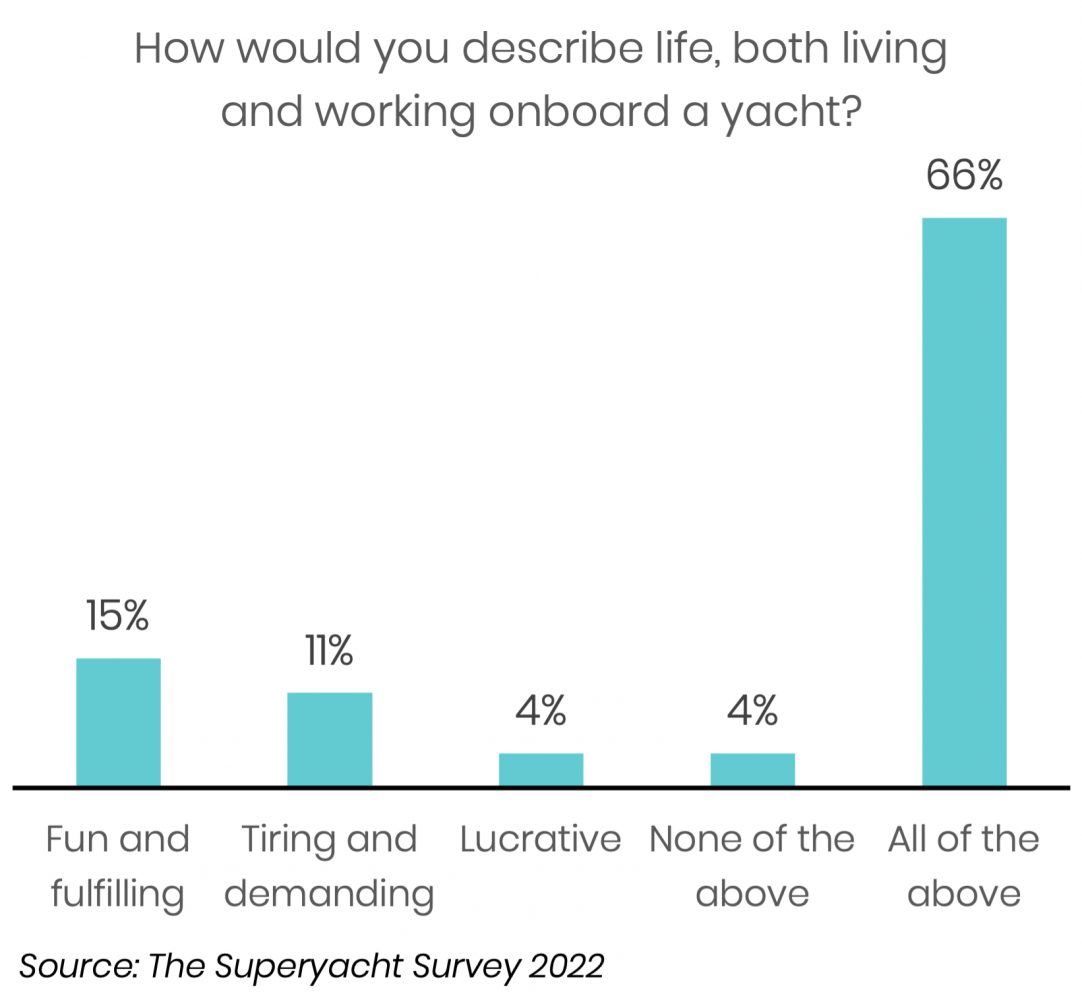
When asked to describe life working on a superyacht, respondents were given a set of options to choose what best described their experience. The overwhelmingly common response, with 66 per cent of respondents opting for it, was to select the ‘All of the above' option, suggesting that working on board was at once Fun and Fulfilling, Tiring and Demanding and Lucrative. While there are of course a great many other descriptors that could be chosen to describe working on a superyacht, these three choices do seem to be representative of the typical crew experience.
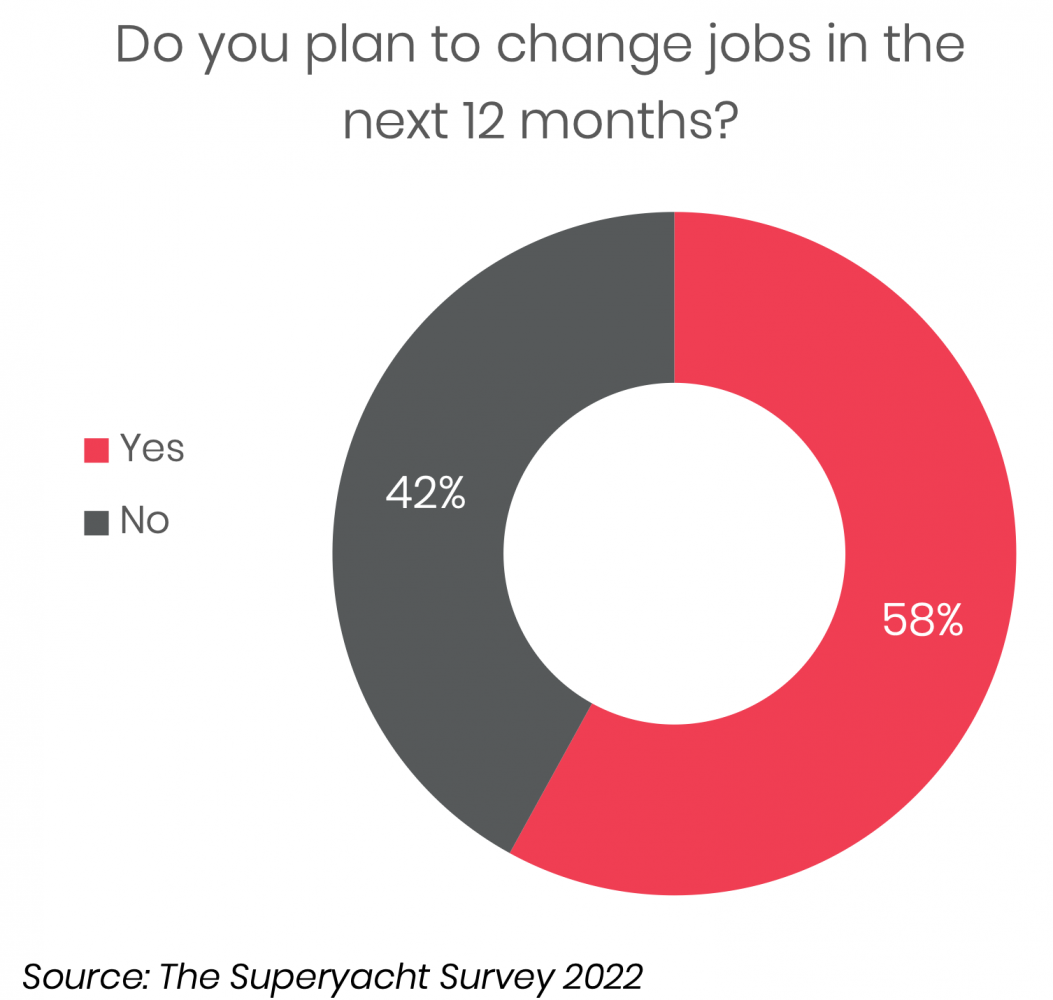
Crew retention remains one of the most discussed operational topics within the superyacht industry and it can be hard to pinpoint why exactly the issue remains so pervasive. Is it that crew often join the industry for a varied experience and that staying on board a single vessel fails to live up to this expectation? Do some crew get burnt out on certain vessels? Could it be the confined nature of the accommodation can lead to conflict? Or is it that crew are simply eager to grow through the size ranges and increase their pay packets? Realistically it will be a mixture of all of these reasons and many more to boot given that the above list is by no means exhaustive.
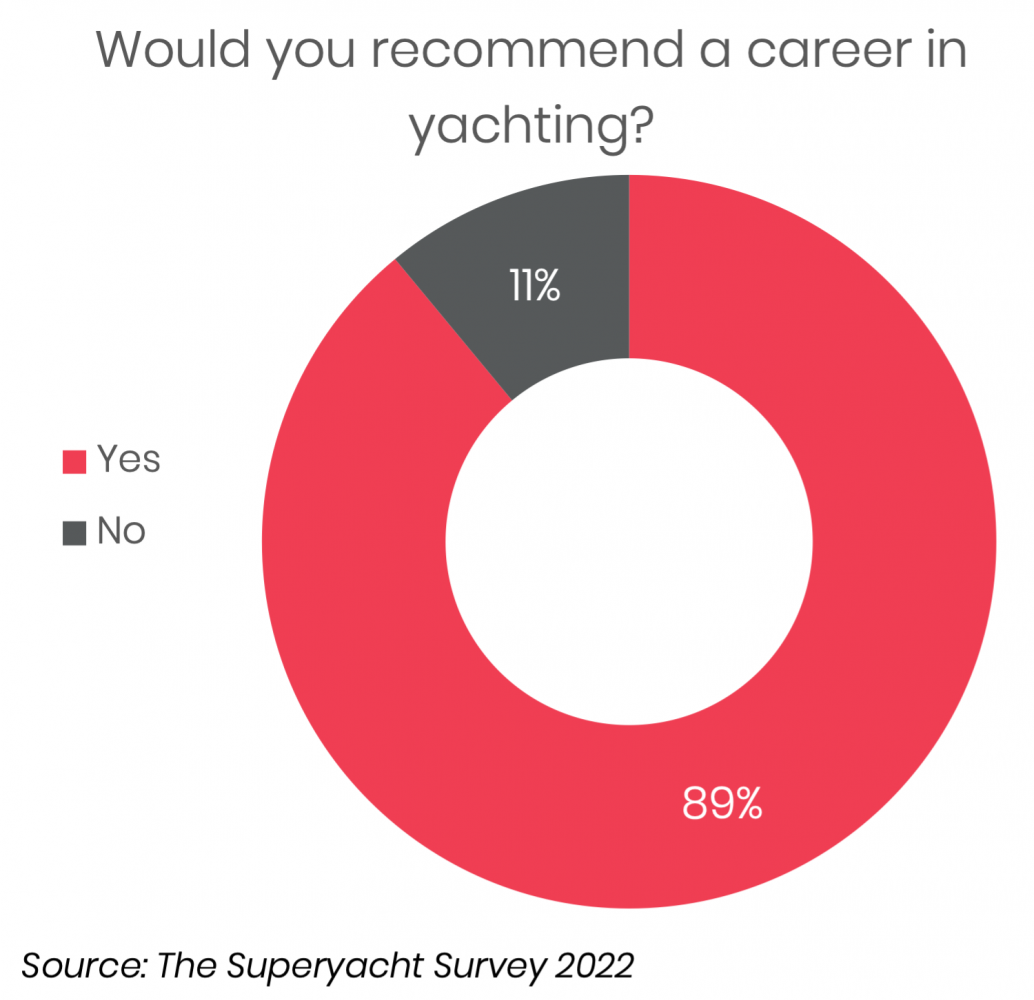
The report, however, at least highlights that crew retention still very much remains a problem with 42 per cent of respondents admitting that they planned to change jobs within the next 12 months. In fact, it was those crew with the longest careers (5-plus years) that were most ready for a change, with 60 per cent within this demographic looking for new work.
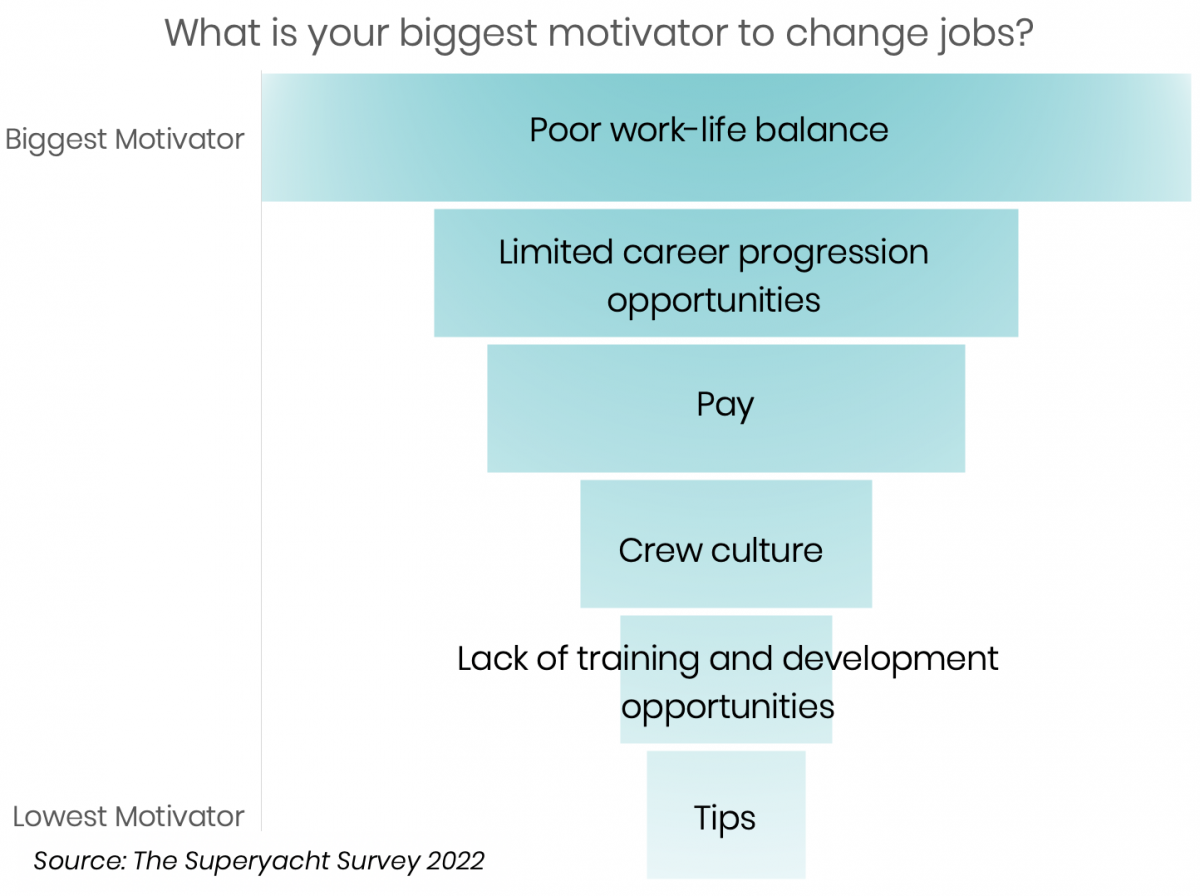
By far the biggest contributor to crew wanting to change superyachts or roles was their desire for a better work-life balance, followed by limited career progression opportunities and pay. Crew culture, training and tips, by contrast, featured far less prominently. Long hours and limited downtime have always been a feature of working on superyachts, but it seems that, for the most part, the systems that have been put in place to negate the negative elements of working on a superyacht are not always successful. That being said, while a large portion of respondents are looking to change jobs, a staggering 89 per cent would recommend a career in yachting. The disparity between these two findings is perhaps indicative of a market that is full of adventure and opportunity.
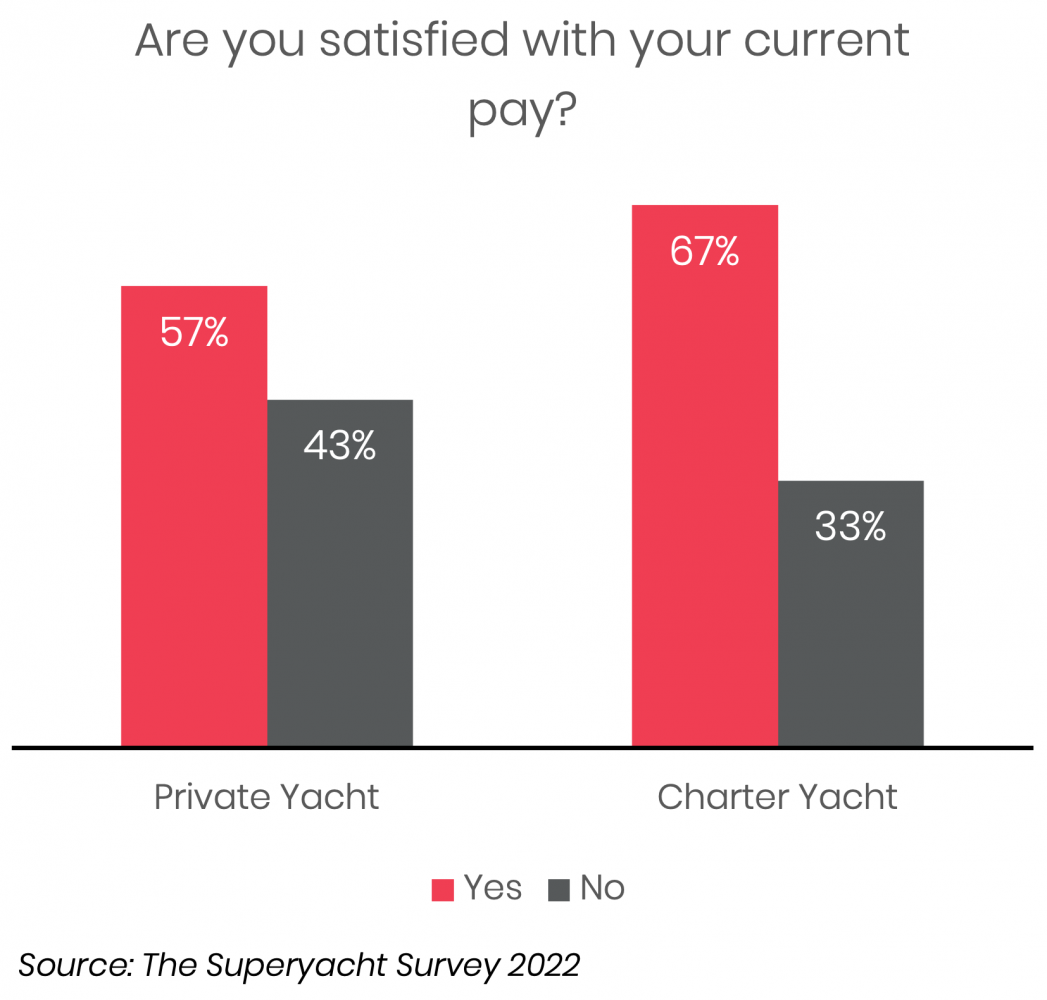
One element of the professional superyacht experience that seldom has doubt cast upon it is how lucrative it can be. Indeed 57 per cent of respondents working on private yachts explained that they are satisfied with their pay and 67 per cent of charter respondents agree. The larger degree of satisfaction on the part of the charter employees is unsurprising given that their wage packets have the additional benefit of generating tips on charters. Pay, however, also features as the second most important part of choosing a role on a superyacht according to the survey.
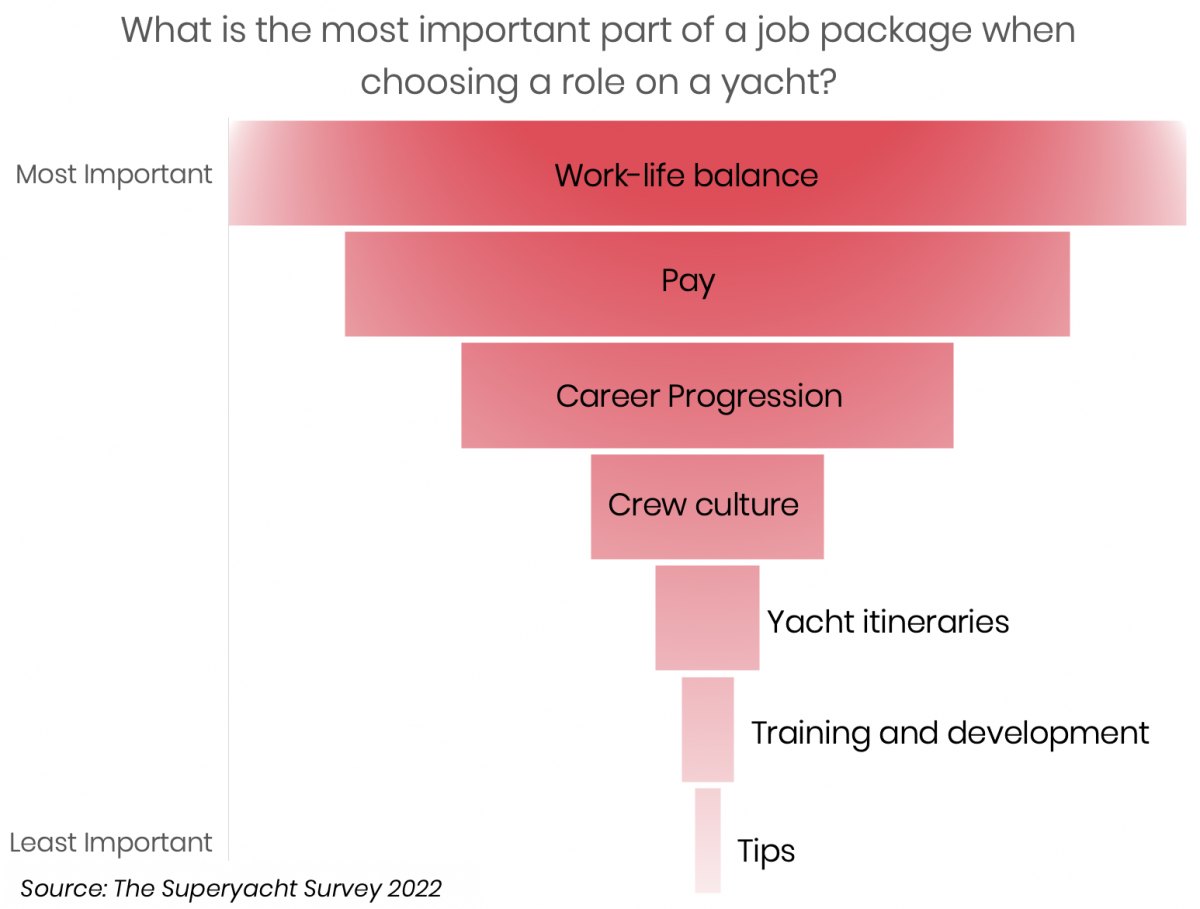
Once again work-life balance ranks as being the most important factor when choosing a superyacht career, followed by pay and career progression. It seems unlikely that the other elements of the role are unimportant, but the other elements of the role are perhaps more known quantities. There will, of course, be superyachts that have a poor onboard culture, or who pay little attention to training and development, but certainly, on the well-run vessels, these elements are almost expected. However, those vessels with the best work-life balance, perhaps expressed through rotation for instance, are the ones that have the greatest appeal today.
“Work-life balance ultimately equates to job satisfaction, and this is much more important than salary for me,” comments one deck crew member.
“Money is not everything. Being happy and heard and appreciated is much more necessary,” comments an interior crew member.
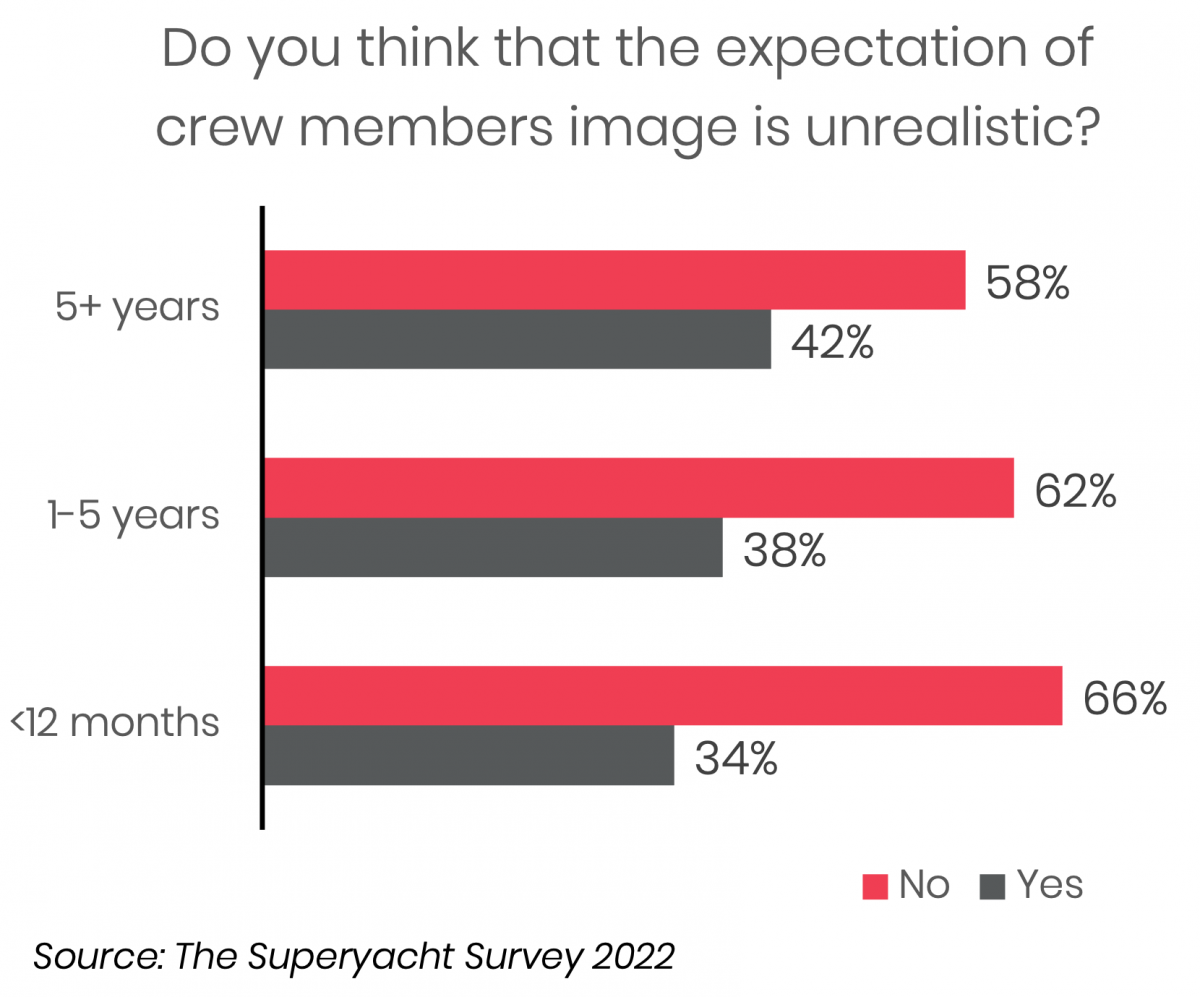
In recent years more has been globally made about businesses moving away from prejudiced methods of hiring and the superyacht industry is no different. It is largely accepted that the superyacht market has an image problem, in so far as image seemingly plays such an important role in terms of who gets hired. In fact, it remains one of few industries where it still seems to be acceptable to include pictures on a CV. However, this survey seems to suggest that image isn’t such a problem.
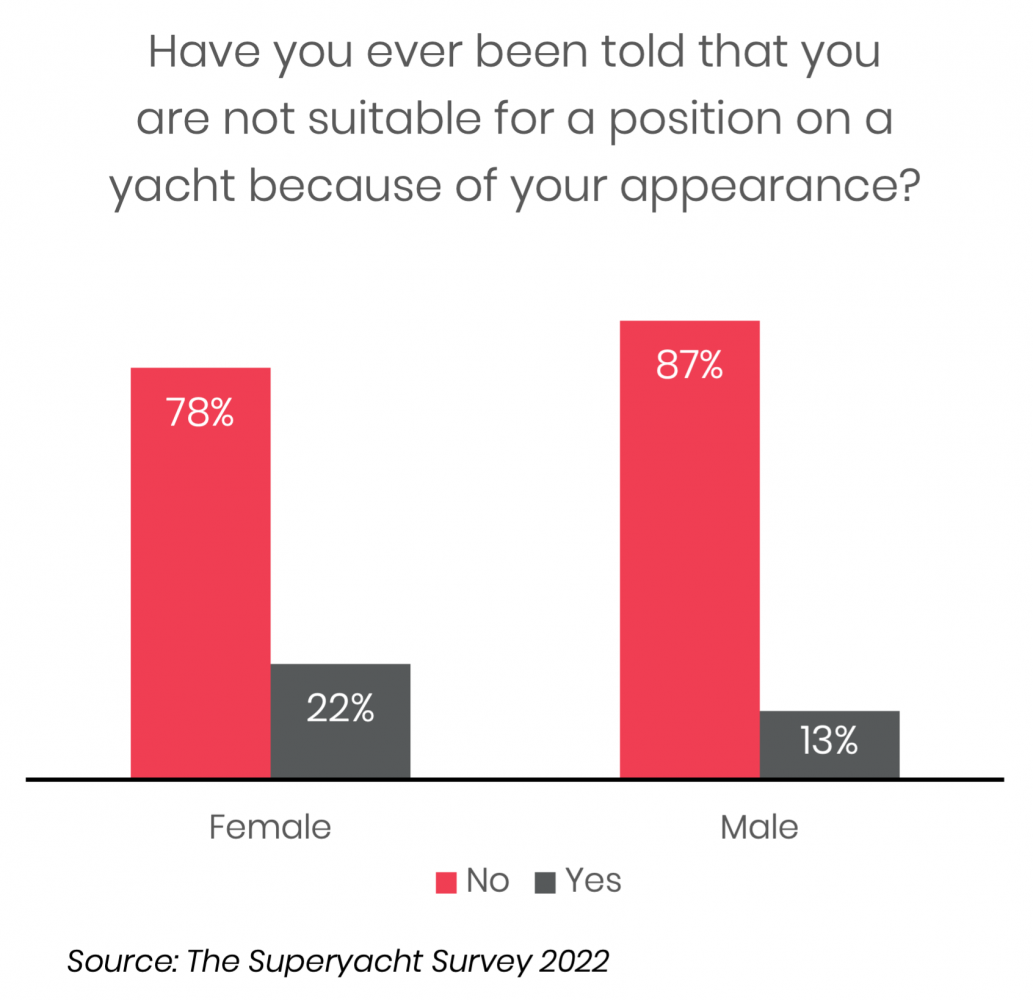
Indeed, 78 per cent of the female respondents and 87 per cent of the male respondents say that they have never been told they are not suitable for a role because of their appearance. Furthermore, the majority of respondents, regardless of experience, disagree with the notion that crew image expectations are unrealistic. These responses seem to be at odds with general market rhetoric and commentary today and it seems highly likely that these responses are biased in so far as the responses have been provided by people that have successfully found roles onboard superyachts.
Understanding the thoughts and feelings of superyacht crew are absolutely vital for helping the superyacht market to evolve. While it is often said, "happy crew, happy owner", almost all in the industry will stand by the truth of this statement.
Profile links
NEW: Sign up for SuperyachtNewsweek!
Get the latest weekly news, in-depth reports, intelligence, and strategic insights, delivered directly from The Superyacht Group's editors and market analysts.
Stay at the forefront of the superyacht industry with SuperyachtNewsweek
Click here to become part of The Superyacht Group community, and join us in our mission to make this industry accessible to all, and prosperous for the long-term. We are offering access to the superyacht industry’s most comprehensive and longstanding archive of business-critical information, as well as a comprehensive, real-time superyacht fleet database, for just £10 per month, because we are One Industry with One Mission. Sign up here.
Related news
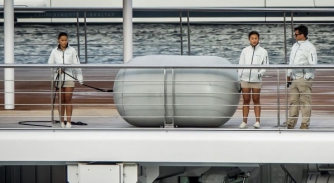
“We’re suspending all projects on yachts affiliated with the Ukraine crisis”
M/Y Crew Agency publicly states its intention to cease business with yachts affiliated with the Ukraine crisis
Crew

Advice for crew on Russian-linked superyachts
PYA has provided some advice and useful contact information for superyacht crew on Russian vessels
Crew

February new build fleet analysis
The slow start to the year continues with the projected order book beginning to look unrealistic
Fleet
.jpg)
An experience in its own right
How tenders evolved from workhorses to high-end standalone experiences
Owner
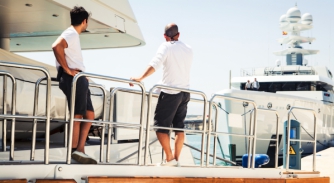
Crew on Russian-owned superyachts urged to join trade union
Industry stakeholders have banded together to urge crewmembers to sign up to Nautilus International
Owner
Related news
Advice for crew on Russian-linked superyachts
4 years ago
February new build fleet analysis
4 years ago
An experience in its own right
4 years ago
NEW: Sign up for
SuperyachtNewsweek!
Get the latest weekly news, in-depth reports, intelligence, and strategic insights, delivered directly from The Superyacht Group's editors and market analysts.
Stay at the forefront of the superyacht industry with SuperyachtNewsweek


